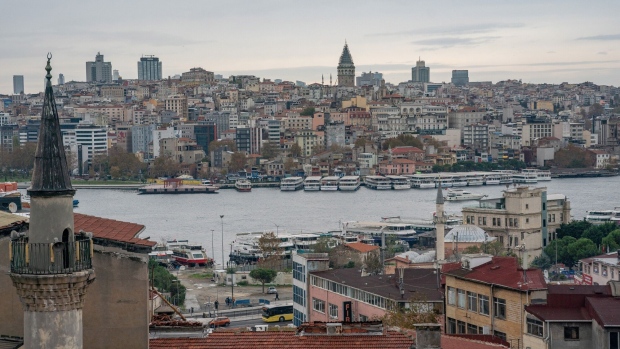Dec 13, 2023
Middle East Travel Went From ‘Total Panic’ to Recovery, Accor CEO Says
, Bloomberg News

(Bloomberg) -- Hotel bookings in the Middle East are rebounding from an initial chill following the Hamas invasion of Israel on Oct. 7, according to the head of Europe’s largest hospitality company.
“It was total panic in the month of October,” said Accor SA Chief Executive Officer Sébastien Bazin, speaking remotely at a forum in Dubai on Wednesday. “We thought it was going to be a debacle—certainly in Egypt and in North Africa and Morocco and so forth.”
The French group saw cancellations during the first two weeks after the attacks but bookings have been recovering, he said. “It’s been very, very short lived,” Bazin said of the travel-booking freeze. “The occupancy we have today in Sharm el-Sheikh, in Cairo, and many other places has been very, very strong.” Accor—which runs dozens of hotel brands including Raffles, Fairmont, Sofitel and Ibis—declined to provide occupancy figures for Egypt.
His comments echo what some others in hospitality have started to observe. Glenn Fogel, the CEO of Booking Holdings Inc., told Bloomberg that travel in the Middle East is normalizing.
The rebound suggests an easing of fears the Israel-Hamas war will escalate into a full-blown regional conflict, despite fierce opposition by Arab nations to Israel’s devastating retaliatory attacks on Hamas-run Gaza. At least 18,000 Palestinians have been killed in air strikes and ground battles in the Mediterranean enclave, according to the local health ministry, while Israel says 1,200 were left dead following the Oct. 7 incursion.
Hezbollah, an Iran-backed militant group based in Lebanon, has been trading cross-border fire with Israel’s military for several weeks, without embarking on all-out war.
Travel to places as far away as Turkey, Morocco and the Gulf immediately slowed following Oct. 7, when tourists put off non-essential trips as they waited to see how the violence would play out. Travel from the US in particular took a hit. Wealthy Americans even canceled trips to Paris on security concerns.
Closer to the war’s center, executives say business in the region is still down.
“Israel, Egypt, Jordan and Lebanon just went off a cliff,” said Chris Hartley, CEO of the Global Hotel Alliance, which includes dozens of brands such as Anantara, Kempinski, Leela, Nikki Beach and Viceroy. “Basically from mid-October until now, have seen very, very low occupancies into those markets.”
In other parts of the Middle East, the picture has been somewhat clouded by events such as the COP28 global UN climate summit in Dubai, which brought thousands of corporate and government officials into town. “It’s hard to see the impact, because there’s growth anyway at this time of year,” Hartley said. “Is the growth a bit less steep than it would’ve been? It’s a bit of a harder question.
With many flights scrapped in and out of Israel, airlines said business would decline, though often in single-digit percentages. Travel data firm ForwardKeys said the number of tickets issued in the three weeks after war broke out declined globally by several percentage points, indicating that people were either canceling travel or putting off making decisions.
But the longer-term outlook remained unclear. The head of Virgin Atlantic Airways said in October that the situation was unpredictable.
©2023 Bloomberg L.P.


